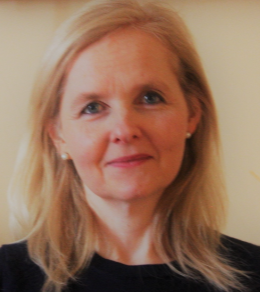FARMINGTON, Maine — Karly Jacklin took a turn from the sidewalk and headed into a brick building as she walked around the University of Maine at Farmington campus on a sunny day earlier this month.
She had to pause to orient herself before she discovered the hallway she was looking for — one with a handful of doors leading to empty offices, and a bulletin board with “Religion” tacked onto it in big letters at the top, but with only a few out-of-date notices still hanging.
Professors from two departments used to occupy those offices, and Jacklin used to visit the hallway regularly to work with religion professors. Now, it’s empty, so she hasn’t been back this semester.
“It’s a shell,” she said. “The losses, culturally, are just gutting.”

The University of Maine System advertises its small university in Farmington as its public liberal arts college. It has consistently earned top national rankings, even stacking up with private colleges, and the university system has long lauded the institution as its “jewel.”
But in May, nine faculty members in humanities and social sciences — key parts of the school’s liberal arts offerings — were told they no longer had jobs. Nine other faculty members took early retirement.
There’s no longer a world languages department nor a philosophy and religion department. The university’s women’s and gender studies program also is gone. Three additional positions were eliminated in the geography, psychology and history departments.
Students this semester are feeling the effects. Some have reconsidered their courses of study because they can no longer take the classes they need at their university. While students have been encouraged to enroll in comparable courses at other University of Maine System campuses, they’ve had difficulty doing so. In some cases, student groups have effectively disbanded because the faculty members who advised them were among those whose positions were cut.
“It kind of stopped me in my tracks. It felt like the end of an era,” Jacklin said. “I think it was just resounding for everybody, that this is not what we signed up for.”

The cuts drew intense backlash last spring, with students organizing sit-ins and calling for the removal of the system’s chancellor, Dannel Malloy.
The cuts were the result of a financial condition that hadn’t improved in years, said Ryan Low, the university system’s chief financial officer and a Farmington alumnus.
The Farmington university has not had a balanced budget since the 2014-15 academic year, Low said, and its enrollment has dropped by about a quarter over the past decade, from about 2,000 full-time students to 1,500 this fall.
Campus leadership were able to fill the gaps by digging into reserves and other funding sources. But those options had dried up, Low said.
University system and campus leadership determined where to cut based on program enrollment and instructional costs. Consultant Ron Hovis and the consulting firm Gray Associates produced those data for the university system, which paid them around $80,000 for their work, according to their contracts.
“When you’re looking to make reductions like this, you want to do it surgically,” Low said. “Nobody wants to go in there with a big meat cleaver and just start hacking away at every program because that just is going to continue that spiral to the bottom.”
After losing 18 professors, the university still has the equivalent of 123 full-time faculty members, which includes part-time and temporary instructors, Low said.


Ann Kennedy’s office sits empty inside the building that once housed the women and gender studies department at the University of Maine at Farmington on Dec. 5, 2022. Kennedy was one of nine professors retrenched by the university as part of a sweeping effort to balance the university’s budget. Credit: Sawyer Loftus / BDN
But some wonder if the Farmington university can continue to be the system’s liberal arts college after such deep cuts, which spared the college’s teacher education programs.
“This was an amputation,” said Jonathan Cohen, who lost his job as a philosophy professor. “This was just lopping off a significant part of the college. I suspect what’s going to happen is that the college will go back to being a teacher education place, the way it was before the late ’60s, early ’70s.”
Jacklin, who was drawn to the university because she said it had everything private liberal arts schools like Bates and Bowdoin colleges have to offer at a public university price, has had to scramble to finish her minor in religion, as the cuts left her without a religion department from which to take classes.
The 21-year-old senior from rural Ohio put together plans with her adviser to independently study religion in her final semester to complete her minor. But the frustration that propelled Jacklin and others to start the “Save the Humanities” campaign last spring to protest the cuts, remains.
“These professors were really well-liked, some of their classes were always full,” she said. “It was right after the leaked Roe v. Wade decision came out. Two days later, it was like, well, you don’t have any women’s and gender studies. It was truly awful.”
One thing she couldn’t save was the Jewish Student Union, which she had worked with Cohen to get off the ground before he was laid off last spring.
Cohen had taught philosophy at Farmington for 30 years. He was also the director of general education two decades ago, when the university system wanted to shift the school’s identity from the state’s teachers college its public liberal arts school.
That shift brought about a four-credit-class system, allowing students to take fewer classes, but the classes were deeper and required more work, he said.
But along with the faculty cuts, that four-credit system is on its way out, too.
Cohen said he understands the university’s difficult financial position, but never imagined his program would be the one on the chopping block.
“I knew that it was possible. I knew that philosophy was a very small program,” he said. “I guess I was still surprised because I understood UMF to fancy itself as a liberal arts college and, of course, philosophy is fundamental to what that’s all about.”
Cohen said he was also shocked by the elimination of foreign languages on campus.

Celia Canavan was drawn to Farmington for its international and global studies program, which focuses heavily on foreign languages. But she dropped the major once the cuts were announced and classes she had already signed up to take this fall disappeared.
Now, after pursuing a double major, the senior is exclusively a political science major.
“It feels like a ghost of the program it was,” she said of international and global studies. “I always try and look at it like a glass half full. But not having the option for philosophy or things like that, it doesn’t feel like I’m getting as well-rounded of an education in the program that I was getting a year ago.”
Before the cuts, Canavan and other students in international and global studies had their pick from three pages of classes, she said. Now, that list is half a page long.
When Canavan attempted to take a Spanish course this fall, it would have been online at the University of Maine at Augusta, she said. But because she is a Farmington student, she didn’t have access to the Augusta course catalog and had to email the professor about taking the course.
By the time she and the professor figured things out, however, it was several weeks into the semester, Canavan said.
The situation has inadvertently sparked a new academic passion.
“I’m now looking into educational policy and law,” Canavan said. “It is 100 percent because I do not like what is happening here.”
But Canavan said she worries that graduate schools she is applying to will see that she switched from a double major to a single one and think she couldn’t handle the work.

Like Canavan, Trinity Slate’s course of study hasn’t been wiped away, but it has become more difficult to complete, they said.
Slate, a first-year who attended Carrabec High School in Anson, at first wasn’t considering Farmington but then chose it over an English-language university in France.
“I was so excited for the international global studies degree. Now it is essentially words on a piece of paper. I might as well just do general requirements and political and anthropology classes, that’s all it is,” Slate said. “I think, unfortunately, it’s completely lost its meaning and its significance.”
What ultimately drew Slate to Farmington was the opportunity for a liberal arts experience at a public institution where they’d be able to focus intensely on international and global studies.

“I think that I was sold this idea of Farmington, and some of it’s been proven true,” Slate said. “And I think some of it, just due to circumstances made outside of a lot of people’s control, was proven totally false.”
But even though Slate is at the start of their college career, Slate said they don’t want to leave Farmington.
“I’ve become too loyal to so many people that I would rather stay and defend what I have experienced,” Slate said. “If you’d asked me earlier this semester, I would have said, ‘I’m definitely going to leave if I see anything else going sideways.’ Now, I’m going to fight for it.”















